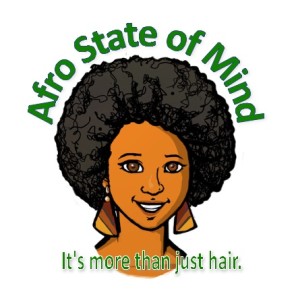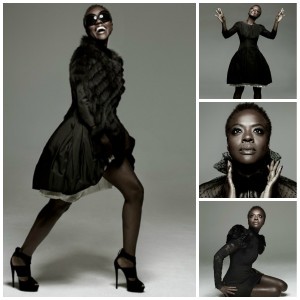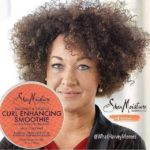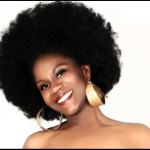You’re No Classic Beauty…
I simultaneously laughed in disbelief and cringed with pain when I read Alessandra Stanely’s racist September write up about Viola Davis and Shonda Rhimes.
Specifically the line that read:
“Ignoring the narrow beauty standards some African-American women are held to, Ms. Rhimes chose [Viola Davis] who is older, darker-skinned and less classically beautiful than Ms. Washington, or for that matter Halle Berry…”
It was the kind of “article” that is so grounded in racist presumptions, it makes you wonder if you’re getting punked just for reading it.
Thankfully the piece was raked over the coals as everyone from #BlackTwitter to #WellActuallyTwitter pointed out the racism underlying the entire piece. Viola Davis, no stranger to being second guessed by the mainstream media (let alone having to respond to questions about her hair), said the following:
“I’m glad that Shonda Rhimes saw me and said “Why not?” That’s what makes her a visionary. That’s what makes her iconic. I think that beauty is subjective. I’ve heard that statement [less classically beautiful] my entire life. Being a dark-skinned black woman, you heard it from the womb. And “classically not beautiful” is a fancy term for saying ugly. And denouncing you. And erasing you. Now … it worked when I was younger. It no longer works for me now. It’s about teaching a culture how to treat you. Because at the end of the day, you define you.”
Longtime readers know I’m a huge fan of Viola’s work and her brilliance. And as I say each time I write about her: “God I Love that Woman!”
De-Feminizing Black Womanhood
I had the same feelings of disbelief and anger when I read about the Russian tennis chief who criticized Venus and Serena Williams by de-feminizing their bodies through the use of racist and sexist language. According to Global Grind
“Two of the most beloved tennis players in the world were the target of sexist comments courtesy of Russian tennis chief Shamil Tarpischev after he referred to Venus and Serena Williams as “brothers” and said they were “scary to look at.” Tarpischev said the comments during an interview on a Russian talk show earlier this month when he was asked about the sisters.”
In response Serena Williams said the following:
“I think the WTA did a great job of taking initiative and taking immediate action to his comments. I thought they were very insensitive and extremely sexist as well as racist at the same time…they were in a way bullying…
Though seemingly unconnected, each of these incidents—one where Black women are rendered “less classically beautiful” or de-feminized and depicted as mannish brutes—target Black women at the top of their game. Neither of these notions is new; they are part of a body of political ideas about beauty that are designed to maintain a racist status quo.
That status quo is centered around one unifying notion: That Black women, our beauty and our bodies, are so far outside the parameters of what could conceivably be considered beautiful that there is no possible way for us to ever meet that definition.
Even those of us who might be considered “pretty,” are often considered “pretty for Black girls.” And that type of “pretty” only gets positive social sanction when it either: 1) comes close enough to European standards of beauty that it can make White people comfortable (i.e. Halle Berry/Mariah Carey) or 2) is so far outside the “norm” that it is pretty in an “exotic” way (Alek Wek).
The only way for a Black woman to be included in that “narrow” definition of “classic” White beauty is if she aligns herself closely with White physical features. By doing things like bleaching her skin. Or putting unregulated, untested chemical concoctions on her (and her baby girl’s) head to make her hair do something it was never designed to do: look like the hair our White sisters grow naturally…
But Stanley & Tarpischev Are Right…
And you know what? Writers like Stanley and Coach Tarpischev are right.
Because though we may hate to admit it, there really is no way for Black women who look Black or who wear ethnically Black hairstyles to ever truly be beautiful under the existing paradigm of “classic” White beauty norms.
And that is because “classic” White beauty norms were intentionally designed to exclude us.
A standard of beauty is both a thing of art and politics. The standards in any society set the rules and those rules reinforce the status quo. The White beauty norm centers on European features as the default position. It was created when White America was busily embedding a race-based hierarchy within the fabric of society (aka “the enslavement of Black people”).
A hierarchy where dark brown skinned people, big butts, rounds noses, and full lips, became the default physical characteristics of the disempowered slave class. One where white pale skin, thin noses, thin lips and straight hair were the default characteristics of the ruling slave owning class.
This wasn’t an accident. It was the whole point of race-based slavery in the first place.
When the status quo is based on the racialized distribution of power and access to resources, a standard of beauty becomes a political weapon that help maintain the social order.
It goes a little something like this:
- African people were enslaved.
- Enslaved people have no power.
- People who look like African people now become people who look like they have no power
And no one wants to look like the bottom (most especially not those at the bottom). Because when your skin, hair and features look like the least powerful, least desirable position in society, you physically embody the contempt that those who have power feel for those of us who have none. That contempt is imbedded in the fabric of society.
Excluding women with African features from the definition of who could be beautiful wasn’t some accidental freak of nature. It wasn’t accidental at all. It was a strategic move that allowed the slave ruling class to maintain order
About that Class…
When we talk about “classic beauty” we forget that the “class” we’re talking about is only large enough to contain the most racist of ideas of who can be beautiful. The “class” we’re talking about was specifically and intentionally designed to be too small to contain the beauty that is Viola, Venus and Serena.
Here’s what we need to remember: None of us who are Black, who look Black or who dare to wear Black hair, will ever be “classically” beautiful.
And. We. Don’t. Need. To. Be.
Because that class can’t hold a candle to the God-inspired beauty that is Black beauty. That class has never evolved from the inherently, virulently racist class that it was intentionally designed to be.
We need to remember this and remind ourselves of it every day (and if you need help with that, keep reading this site and the works of people like Dr. Yaba Blay whose Pretty.Period project is helping to change the standard of beauty that Black people apply to themselves). We need to raise our kids on a daily diet of “you are beautiful, Black and brilliant” because the world they live in is giving them hourly doses of “you are less than because you are Black.”
We have to loudly remind ourselves on a consistent basis because as I said in my book, Afro State of Mind: Memories of a Nappy Headed Black Girl,
“Since the days of slavery (whether in the U.S.A. or in Latin America) and colonization, the predominant standard of beauty has explicitly and intentionally excluded Black women. Yet, in response, the masses of Black women collectively spent the decades after slavery trying to squeeze, manipulate and contort our bodies in an attempt to fit into a beauty model that was never intended for us. Nowhere do we see that battle played out more than when it comes to Black hair and skin color.”
But A Healing Cometh…
But as is true with healing of all kinds…we seem to have turned a corner.
It seems as if with the birth and growth of the natural hair movement, we’ve seen a paradigm shift in Black womens’ willingness to embrace who we are and how we show up physically in the world. More and more Black women are bravely staring down the notion that our hair must be straight, that our skin must be light, that our features must be White in order to be beautiful. The more we love ourselves and our bodies the stronger we become in the face of the onslaught of messages that suggest we must look like our White colleagues.
See, Ms. Stanley & Coach Tarpischev, we don’t need to be included in your racist definitions of who is beautiful. As we continue to love ourselves we can say it loud: “I’m Black, Beautiful, and Proud.”
So from one proud, beautiful Black girl who is learning to embrace herself as Pretty.Period: You can take your racist notions of “classic” White beauty and femininity and shove them up your ass class.
*********
Looking for more thoughts from an Afro State of Mind? Check out my book Afro State of Mind: Memories of a Nappy Headed Black Girl now available on Amazon.com in paper back or e-book! And if you want to stay connected follow me on Twitter, “like” Afro State of Mind on Facebook or catch up on my latest youtube videos!






Thank you for the article! I’m so tired of seeing beautiful, Black women attempting to conform to European standards of beauty,then subsequently feeling inadequate after not meeting those standards, when there is absolutely nothing wrong with them.
What a perfect and on point assessment. That is exactly how I felt today and had to fight my way out of feeling inadequate, when I know the only reason I feel inadequate is due to the European beauty standard that tells me I am less than.
I really appreciate this article. I have been called exotic looking many times; my eyes are hazel and my facial features are angular, so in some ways I fit into the Euro standard of beauty. Yet I don’t. I identify with and feel like a chocolate sistah on the inside, and I have the unmistakeable kinky hair of my African ancestors. I wore it in locks for many years and now it’s a short kinky fro. I have received some flack about my hair choice (mostly from black men), and it takes effort at times to remind myself that I am beautiful, nappy hair and all. I realized today that I think I look more attractive with longer straighter hair because society is telling me that is what’s attractive. Blogs like this help remind us that we are uniquely beautiful.